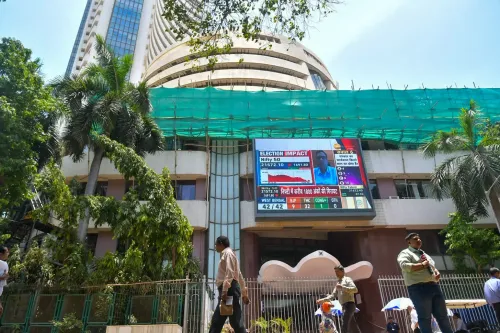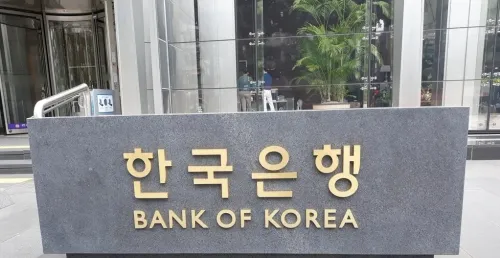Did the Centre Approve Over Rs 304 Crore for R&D in 5G and 6G Technologies?

Synopsis
Key Takeaways
- 110 projects approved under TTDF for 5G and 6G technologies.
- Total funding of Rs 304.70 crore.
- Projects range from 1 to 5 years in duration.
- Introduction of Financial Fraud Risk Indicator (FRI) to combat financial scams.
- Collaboration among academia, start-ups, and industry is encouraged.
New Delhi, Aug 6 (NationPress) The Centre has sanctioned a total of 110 projects focused on 5G and 6G technologies, amounting to Rs 304.70 crore, under the Telecom Technology Development Fund (TTDF) scheme as of June 30, as reported to the Parliament on Wednesday.
The TTDF Scheme, initiated on October 1, 2022, aims to finance Research and Development (R&D) and spur innovation within telecom technologies. It promotes collaboration among academic institutions, start-ups, MSMEs, research agencies, and industry participants, thereby enhancing India’s telecom landscape, stated Dr. Pemmasani Chandra Sekhar, Minister of State for Communications and Rural Development, in a written reply to Lok Sabha.
The approved R&D projects will span a duration of 1 to 5 years.
Currently, these projects are in their preliminary development phases. The TTDF scheme is facilitating funding across various technological areas for advances in 5G and 6G, involving both government and private entities, including MSMEs and start-ups, the minister added.
In addition, the Department of Telecommunications (DoT) has introduced the Financial Fraud Risk Indicator (FRI), a risk-based tool that categorizes mobile numbers based on their association with Medium, High, or Very High risk of financial fraud, as the minister informed.
The FRI equips stakeholders, particularly banks, Non-Banking Financial Companies (NBFCs), and Unified Payment Interface (UPI) service providers, to prioritize enforcement and implement enhanced protective measures when a mobile number is flagged as high risk. The FRI is accessible via the Digital Intelligence Platform (DIP) for stakeholders.
The RBI has issued distinct advisories to banks and Payment Service Operators (PSOs) for the integration of FRI into their systems and to adopt essential real-time response protocols (such as alerts, transaction delays, warnings, transaction declines, etc.), stated the minister.
According to the report, based on the Action Taken Reports (ATRs) submitted on DIP, 34 banks, financial institutions, and UPI service providers have frozen 10.02 lakh bank accounts, and payment wallets, and imposed debit and credit restrictions on 3.05 lakh bank accounts and payment wallets.
The Digital Intelligence Unit (DIU) project of the DoT encompasses various elements aimed at curbing the misuse of telecom resources for cybercrime and financial fraud, the Minister emphasized.










